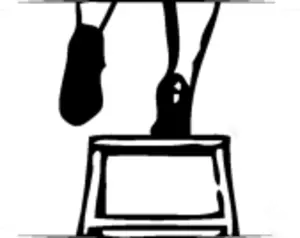Foreword
The wall is there, where before it was not. It is a horrible, gigantic artifact that continues for hundreds of kilometers, adapting itself, overstepping the more or less internationally accepted “borders,” growing in height, or transforming itself into trenches or other structures designed to isolate the “enemy.”
I know some of the places where it rises—for example, Tulkarem, Qalqiliya, and Gush Etzion south of Jerusalem—very well.
But that is not the point. A wall is built of stones and cement. A trench is a hole dug many meters into the ground, assisted by barbed wire, an electronic mechanism, a revolving door. All mute objects desired by fear and imposed by force. These things are not the fundamental point of a human distance that has been dug between Israelis and Palestinians for so long, to the point of becoming almost insurmountable.
At the origin of this distance there is the fear of those who, in a past so remote that by now it seems archaic, could have worked with the “first wave” of settlers, yet gradually became, if not exactly their armed enemy, cheap labor to be utilized. And then, slowly, in the unfolding of decades of political and international errors or swindles, and the shirking of all kinds of leaders (and parties and sides), that fear has turned into a solid object that is far higher and harder than any wall could ever be.
How can you get close to someone made vicious through rejection and confinement, to someone who wallows in the mud of refugee camps, to someone who feeds on the crazy ideology of “throw them all into the sea,” to someone who shoots his Qassams built in the courtyard into the sky thick with clouds? And on the other hand, how can you approach those who see the wall and all its hideous aspects as the only defense against an enemy who has always been painted aggressively as someone forever ill-disposed to any agreement? What to say about certain demonstrations in defense of segregation?
In my opinion, one should not reduce the problem to a mere propaganda issue. It is not just a question of denouncing the abuse committed with the construction of more than seven hundred kilometers of wall, or the shame of this ghettoization, which Jews more than anyone in the world should consider horrible and unacceptable. We must go a step further.
One should not limit oneself to working with Palestinians, to seeing them as brothers and not as enemies to be softened by showing how not all Jews are in favour of this concrete monster that screams revenge to the skies. We must take another step further.
And what should this step be?
Attack. Demonstrative at first, for goodness sake! I do not want to talk about a definitive attack, as basically only the militarist illusion feeds off this kind of thing to the point of indigestion. I mean an attack on the concrete targets that establish, nurture, guarantee, justify, and finance the management of such a monstrosity as the wall in question.
It is not enough to simply call oneself “Anarchists Against the Wall” if the wall stays there in front of our noses as the emblem of the historical inevitability of the decisions of those in power, of those who have usurped the original libertarian expressions of the first Israeli settlements.
Huge actions? Thousands of people brought out into the streets? Fraternizing between Jews and Palestinians such as to make the windows of the Knesset quake? Yes, possibly that too, but also something else besides.
After all, anarchists, even on their own, have historically been capable of carrying out actions of attack, which in their small dimensions and reproducibility have inspired those who suffer exclusion, exploitation, and genocide.
And this last word, believe me, was not chosen at random.
The fact is that reality is right before our eyes. It does not need grand theories, or particular technical or strategic explanations. Just as that handful of women and men who became aware of its existence did not require any particular illumination. Often this fundamental condition of existence—the gaining awareness of a condition of tyranny that some are suffering, whether a few or many, individuals or entire peoples, is a problem that comes later—once set in motion cannot be stopped by anyone.
And who would be able to stop our action, our action as anarchists?
Do we need the charismatic signal of some leader perhaps? Some sort of strategic directorate made up of a handful of imbeciles declaring themselves a point of reference? Certainly not.
We have to attack. Everything else is just a form of support, essential but not of vital importance.
We know the crime that casts a shadow over our horizon by blocking the light of the sun. We know who the poor are, paying the consequences day in, day out. We know who is responsible, beyond the flags or religious choices that are more or less rooted in our forefathers’ atavism.
We need nothing else.
—Alfredo M. Bonanno


